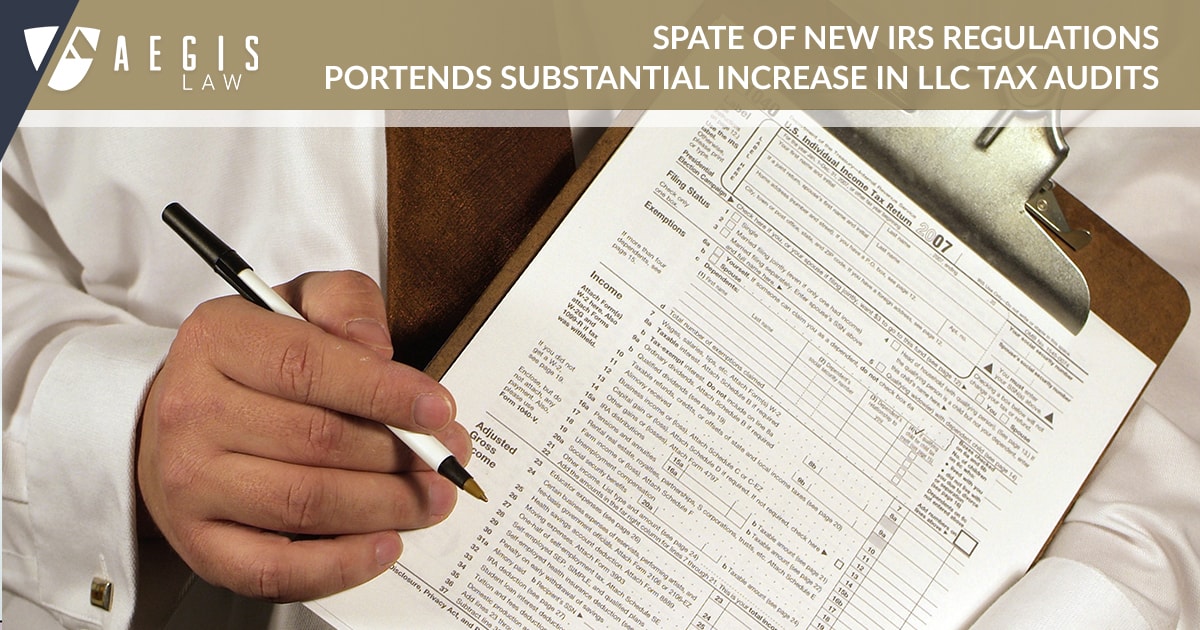IN recent weeks the Treasury Department has issued nearly 300 pages of new regulations on the new partnership audit and collection rules, commonly known and referred to as the centralized partnership audit regime or “BBA,” for short. More regulations are expected to follow in ensuing months. These new regulations augment more than 200 pages of existing final and proposed BBA regulations.
The BBA is the new method that the IRS will use to audit and collect taxes from entities taxed as partnerships (in many cases, limited liability companies or “LLCs” for short). The BBA generally becomes effective for tax years starting on or after January 1, 2018.
Under prior law, each member for the audited year was individually required to pay his or her share of taxes if the IRS found unreported income. Moreover, most members could challenge the IRS’ determinations in US Tax Court or other venue. Under the new BBA procedures, however, the general rule is that the LLC will bear the tax bill (with some exceptions), and only a single individual or company designated as the “partnership representative” can contest the IRS’ determinations in court. Unlike prior law, this may result in new partners or LLC members directly or indirectly bearing the tax bill of the former owners, with no legal recourse to challenge the IRS. Hence the BBA may result in state court lawsuits among members for back tax payments.
Note that in many instances it can take the Treasury years to issue new regulations after a new tax law is enacted, but here regulations are being issued at breakneck speed. Under the proposed Treasury regulations issued last June, the IRS noted the need for the BBA as a means of beefing up IRS tax audits and collections on partnership entities. Indeed, the heavy BBA regulatory activity over the last year or so likely means that the IRS is gearing up for increased audits of LLCs and other partnership entities in 2019 and beyond.
AEGIS Law can help your company prepare for an audit and reduce the chances of member lawsuits with amendments to the operating agreement and the like. Contact your AEGIS Law attorney, or Norman Newmark, AEGIS’ chief tax counsel, at nnewmark@aegislaw.com or (314) 454-9100 x117, for more information.
 Norman Newmark’s practice is focused on tax, estate planning and corporate matters, and he serves as the head of the firm’s tax department. He has an extensive transactional practice involving sophisticated trusts, business entity formation, mergers and acquisitions, buy-sell agreements, and other recognized planning for individuals, health care practices, businesses and non-profit entities. Norman handles probate matters ranging from ordinary estate administration to trust litigation. He has represented individuals and businesses before the Internal Revenue Service and the tax departments of various states. As part of a bar subcommittee, Norman drafted key provisions of the Missouri Uniform Powers of Appointment Act recently passed by the Missouri General Assembly and signed into law by the governor.
Norman Newmark’s practice is focused on tax, estate planning and corporate matters, and he serves as the head of the firm’s tax department. He has an extensive transactional practice involving sophisticated trusts, business entity formation, mergers and acquisitions, buy-sell agreements, and other recognized planning for individuals, health care practices, businesses and non-profit entities. Norman handles probate matters ranging from ordinary estate administration to trust litigation. He has represented individuals and businesses before the Internal Revenue Service and the tax departments of various states. As part of a bar subcommittee, Norman drafted key provisions of the Missouri Uniform Powers of Appointment Act recently passed by the Missouri General Assembly and signed into law by the governor.




